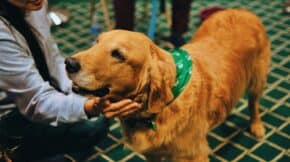What does “use and enjoyment of a dwelling” mean under the Fair Housing Act?

The United States is well known as the country of opportunity. In its Declaration of Independence, Founding Father Thomas Jefferson famously stated: “We hold these truths to be self-evident, that all men are created equal, that they are endowed by their Creator with certain unalienable Rights, that among these are Life, Liberty and the pursuit of Happiness.” The Declaration of Independence, 1776, para. 2 (emphasis added). Thomas Jefferson knew what he was doing when he wrote “the pursuit of Happiness,” rather than simply, “Happiness.” Being “happy” and “enjoyment” are intangible states of being that neither Law nor Medicine can guarantee. But Law and Medicine sometimes work together to make sure that people with disabilities have the self-evident truth of a right to an opportunity to pursue her Happiness and enjoy her property the same as an abled-person.
In the various states in which we file lawsuits for disability discrimination, we are often shocked at how much public entities like colleges and housing providers will fight to prevent a person with a service animal or emotional support animal from having that necessary medical support. What often comes up in disability discrimination in the housing context is the definition of the phrase: “use and enjoyment of a dwelling.” Under the Fair Housing Act, 42 U.S.C.A. § 3604(f)(3)(A)-(B), a disabled person must be afforded an opportunity to use and enjoy his/her dwelling through an accommodation. Often times, a housing provider will argue that a disabled person’s animal does not allow the disabled person to use or enjoy his/her home any more than any other animal, or a smaller animal, or a different animal. This is not what the FHA means.
The Fair Housing Act is not limited to accessing the house itself, but to the property on which the house sits. 42 U.S.C. § 3602(b). “Dwelling” means “any building, structure, or portion thereof which is occupied as, or designed or intended for occupancy as a residence by one or more families, and any vacant land which is offered for sale or lease for the construction or location thereon of any such building, structure, or portion thereof.” Id. Therefore, even animals that are primarily housed outside are designated and protected as ESAs under the FHA so long as they help alleviate one or more of the limitations caused by a person’s disability.[1] Those factors are met in this case.
The FHA prohibits discrimination against disabled people regardless of the manifestation of their disability, physical or psychological. Also, the FHA differentiates between “reasonable accommodations” and “reasonable modifications” for this exact reason. 42 U.S.C. § 3604(f)(3)(A) and (B). Reasonable modifications have to do with changes to the structure of the building, i.e., adding handrails to a shower or installing a ramp to the front door. Id. at (A). Reasonable accommodations are related to the policies, procedures, and rules for the property, such as no pet policies, or allowing an individual to submit rent payments through a separate means if the rent portal is not accessible by the person with a disability. Id. at (B). The point of reasonable accommodations under the FHA is not just so that the disabled person is able to physically enter or use a room, house, or building, but to be able to use and enjoy the room the same as a non-disabled person could. Especially when it comes to “invisible” disabilities, being able to use a home is not the issue, but being able to enjoy the home is. And it is not about whether or not that person is “having fun” in the home, it is about whether or not that person can live in their home as closely as possible as someone without a disability.
In a society without the legal protection of the FHA or NJLAD, a disabled person would be forced to find some other place to live, subject to the whims and caprices of infinite potential future housing providers. Instead, in this advanced and equality-driven society we live in, our federal and state legislators saw that it was right and just to create laws to protect disabled persons so they are not forced to endlessly seek housing.
If you have been the victim of disability discrimination related to your service or emotional support animal, call our our experienced disability animal lawyers at The Animal Law Firm at 1-844-PET-LAWYER (1-844-738-5299) today!


